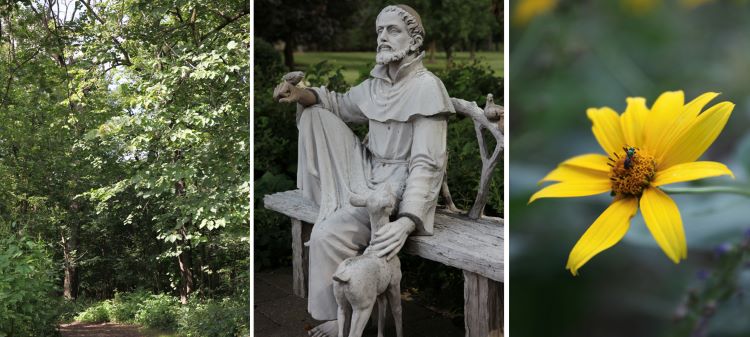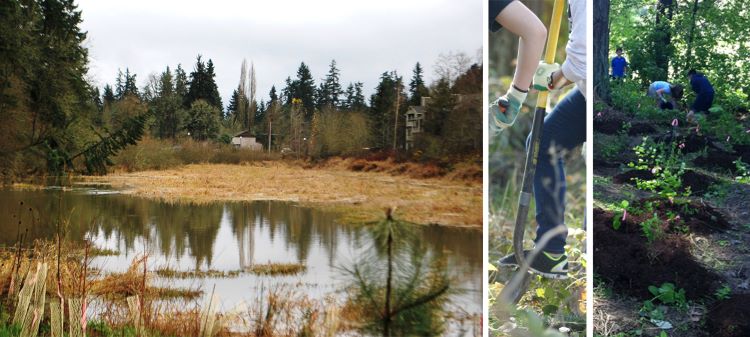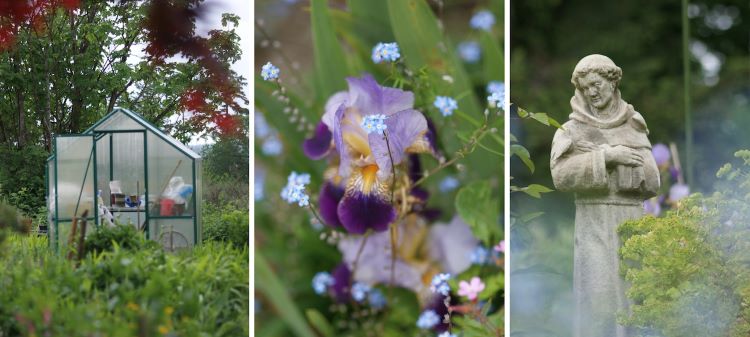Unlikely Climate Champions
Lauren McKenna | December 9, 2019

Solutions to environmental issues are being spearheaded by an unlikely group – older religious sisters and nuns. Their community principles and faith drives them to pursue creative projects that build community and climate resilience.
Faith-communities are part of their neighborhoods, have their own strong-knit congregation and are often property owners. They are capable of enacting positive, ecologically sound practices on that land, be it through solar energy production, a permeable parking lot to reduce stormwater runoff, or a permaculture garden. Many take ecospiritualty – the spiritual connection between human beings and the environment – to heart and to action. Earth Ministries, for example, an advocacy group that encourages “interfaith religious response to global warming” has a Greening Congregation Program aimed to help these communities through ecology-focused prayer, sustainable building and landscaping and climate advocacy.
One particular group has taken the seriousness of climate change to the front lines. They have been engaging in non-violent resistance with indigenous people in Peru, and accompanying them to the UN to shed light on the social and ecological dangers of mining. They’ve built an outdoor church in the path of a pipeline to halt its construction and are working to save an endangered salamander in Mexico. Their activism is nothing short of inspirational, creative and joyful.
This unlikely group is Roman Catholic women religious – i.e. sisters and nuns.
Faith that does ecological justice
Women religious in the United States have an average age of 74. Post-war baby boom and the popularity of radical lifestyles ballooned their population to 180,000 in 1965. Today, however, only 33,431 members remain. Despite this, they still have robust energy to work for the common good.
The Leadership Conference of Religious Women, which represents most women religious communities in the US, has been a member of the Catholic Coalition on Climate Change since 2006 and has an organizational call to “protect Earth and its biosphere,” recognizing that “unbridled consumption and unfettered capitalism imperil the common good and environmental degradation threatens all God’s creation.”

The Maryknoll Sisters in Monrovia, California, for example, host workshops on ecological site design and retreats for neighbors, social justice and faith leaders to reflect on their personal call to climate action. The Sisters of St. Mary in Beaverton, Oregon, partnered with high school science classes to restore a creek on their property. In Joliet, Illinois, the Sisters of St. Francis annually host the Blue Stem Earth Festival, empowering “individuals and families to live more sustainable, socially responsible lifestyles.” The Franciscan Sisters in neighboring Frankfurt, Illinois, offer retreats on cosmology and evolution. The Franciscan Sisters of Perpetual Adoration host canoe retreats in northern Wisconsin to prayerfully learn about conservation and indigenous care of the earth.
In the past, women religious were founded in response to social or political urgency. Today, they recognize that “the urgency is planetary,” and that their faith calls them to climate and ecological action.
Papal Call for Integral Ecology
More recently, the sisters have been influenced by the 2015 encyclical on the environment written by Pope Francis, a former chemist. Laudato Si eloquently bridges science and spirituality to reach the 1.2 billion Catholics in Francis’ stead and secular groups alike, citing the intrinsic link between environmental destruction, consumerism and social injustice and the need for a conversion of heart. It is a call to “hear the cry of the poor and the cry of the earth.”
Proponents have called Laudato Si an “antidote to such unsustainable practices by reconceptualizing sustainability through the notion of integral ecology.” It has inspired universities to divest from fossil fuels and been championed as a more humane way to consider the UN’s Agenda 2030. Environmentalist Bill McKibben writes that Laudato Si is “explicitly directed to all of us, Catholic or not, since the environmental crisis is more universal than any challenge before it.” Indeed, the sisters are role models for how to incarnate Laudato Si on the land and the heart.
Rooted in Stewardship
The truth is, however, that despite recent calls to action by Pope Francis, women religious groups have been stewarding the earth’s resources for centuries. An ecologist found that old monasteries in central Italy – some dating back to 700 C.E. – have some of the most biodiverse landscapes in Europe. Many were home to Franciscan nuns – communities considered to have “proto-ecological sensibilities.”
St. Francis of Assisi (d. 1226), founder of the Franscican Order, is known in Anglican and Roman Catholic realms as the patron of ecology. Rejecting his family wealth, he radically embraced “Sister Poverty,” served the poor and regarded all of creation as his siblings. His poem Canticle of the Sun directly inspired Pope Francis’ encyclical:
“Praise be to you, my Lord, through our Sister, Mother Earth, who sustains and governs us, and who produces various fruit with colored flowers and herbs.”
Excerpt of Canticle of the Sun, St. Francis of Assisi
Today, this poem is sung by Franciscans in open-air chapels and on the front lines of fracking protests.
A Symbiotic Relationship
Sr. Christine Still, O.S.F. is a member of the Sisters of St. Francis of Philadelphia. She shared with me in a recent conversation that their charism, or distinctive character, is “to be in loving relationship with all of God’s creation. If we are in loving relationship with the earth, not dominating or controlling, then we have to care for one another, like a symbiotic relationship.”
Twenty years ago, her community converted a Pennsylvania property to an organic farm that has a CSA and community events. Red Hill Farm has become a fixture in the neighborhood. Last year they installed a pollinator garden and volunteers help with upkeep.

In 2018, they sold a Tacoma, Washington, property to an organization that houses and supports homeless youth, women and children. Sr. Carol Anne, with the help of youth volunteers, still tends the property’s garden that will supply the campus with fresh produce and flowers; she welcomes all who want to get involved.
A Call to Action – For All
Among the 71% of Catholics who believe the earth is warming, many are climate activists and cite these women as their inspiration. Their message, however, is for anyone looking to bring to fruition a personal call to work for change: citizens, planners, designers. Rooted in contemplative action, their radical commitment to their way of life and ecological justice can inform how we address climate issues.
While the future of these women’s communities is uncertain and the threat of climate change immeasurable, their message is this: do not lose hope – use your gifts for the greater good. We can each reflect on how we can work with our neighbors to forge creative ways forward – just as these women have.

Lauren McKenna is a graduate student in the Master of Landscape Architecture at Cal Poly Pomona. Her background in environmental science and education informs her interest in the confluence of ecology, spirituality and environmental justice. She hopes her education can help her better advocate for green space equity in underserved communities.